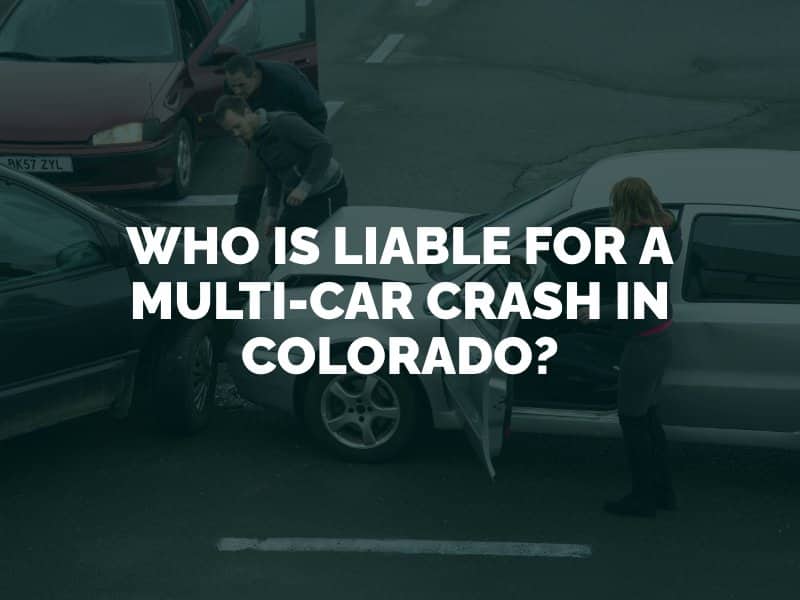Not all car accidents in Colorado only involve two vehicles. Many involve three or more cars. These accidents are referred to as multi-car or chain-reaction accidents. Insurance claims for multi-car accidents are notoriously difficult, as fault can be hard to determine and insurance companies often deny liability. If you get into an accident involving three or more vehicles, contact an Denver car accident attorney for claims assistance.

Liability, or financial responsibility, for a car accident in Colorado is determined using the state’s fault-based insurance law. This rule requires all drivers to carry bodily injury and property damage liability insurance. After a car accident takes place, the driver or person most at fault for causing the crash will pay for the wreck using this liability coverage. An investigation is often needed to determine who is at fault for the crash. An investigation often involves eyewitness accounts, a copy of the police report, crash reconstruction and photographic evidence.
Determining liability is trickier in a multi-car accident case compared to a traditional two-vehicle crash. Rather than only having one driver or the other to blame, insurance companies and investigators must deal with three, four, five, or more drivers. Most of these accidents consist of multiple collisions. This makes it necessary to pinpoint the first collision – the one that caused a chain reaction that involved numerous other vehicles. A common example is a string of rear-end collisions:
Driver C >> Driver B >> Driver A
In this scenario, Driver C would most likely be responsible for damage suffered by both Driver B and Driver A, even though Driver C’s vehicle never actually touched Driver A. This is because Driver C caused the initial collision with Driver B, which then propelled Driver B into the back of Driver A. Not all multi-vehicle accidents come down to the fault of only one driver. In some cases, multiple drivers are allocated a percentage of the blame. That percentage will be how much the driver’s insurance company must pay.
If you get injured in an accident involving three or more vehicles in Colorado, it is important to take immediate steps to protect yourself. Call 911 to report the crash right away, as Colorado law requires a police report for any accident that causes injuries or property damage. Cooperate with the police during the investigation, but don’t admit fault and don’t discuss your injuries. Then, take the following steps to protect your legal rights as a crash victim:
Even if you are found to be partially at fault for a multi-vehicle accident in Colorado, you may still be eligible for some financial compensation. Colorado has a modified comparative negligence law. This law states that as long as your fault is less than the combined fault of the defendants, you can still receive compensation. However, your financial recovery will be reduced by your percentage of fault.